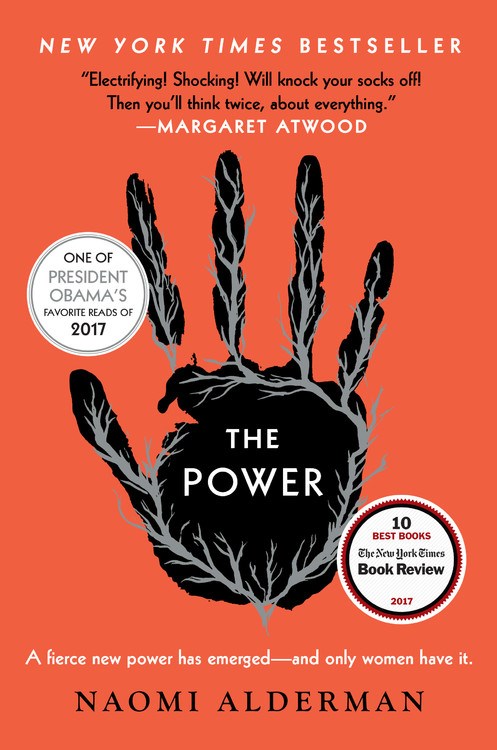During the early 21st century, women develop an electrical power that is expelled from their fingers and can be used to shock or kill. As the Power spreads, it ushers in a new religious and political order run by strongwomen, ending with a worldwide war between the sexes. Historical documents from the Cataclysm era interrupt the novel to signal that we are reading about the past. The framework suggests comparison to Margaret Atwood’s
The Handmaid’s Tale, which is unfortunate because while Alderman’s (
Disobedience) book won the Bailey’s Women’s Prize, it fails on multiple levels. There’s a flimsy explanation of how women got the Power (from a liquid introduced into water systems during World War II to protect against nerve gas, but then why are only females affected?), and the worldbuilding is just as bad. It turns out that it isn't possible to create a believable world from a pastiche of Facebook feeds and Reddit threads, and in any case we need
some evidence that misogyny is a worldwide problem and not just a personal one. Pre-Power women’s victimization is generalized and in some cases assumed (Muslim women are oppressed), and however tragic, the backstories crafted for the strongwomen are poorly imagined and serve only to justify war crimes and transnational drug dealing during the revolution. The narrative abounds with stock characters such as the ambitious woman, the victim, the misogynist Middle Eastern king, and a good guy with a camera, and almost everyone is a background player to Allie and Roxy, the architects of the Cataclysm. There’s also hard-charging female politician Margo, a set piece going nowhere. With Margo, we have to fill in the blanks ourselves; we know she’s ambitious, for instance, because she let her husband raise the kids. In the end, by focusing on the few and most violent women to make her point, the author ignores the complicated nature of power. Societies fail through the daily capitulation to power and privilege, to self-serving silence and the abdication of individual agency, which is what makes
The Handmaid’s Tale so powerful and so relevant.
VERDICT Ripped from the headlines but lacking in verisimilitude, this is a book about power through a narrow lens. Readers will be talking about it, but it is not recommended.




Comment Policy:
Comment should not be empty !!!